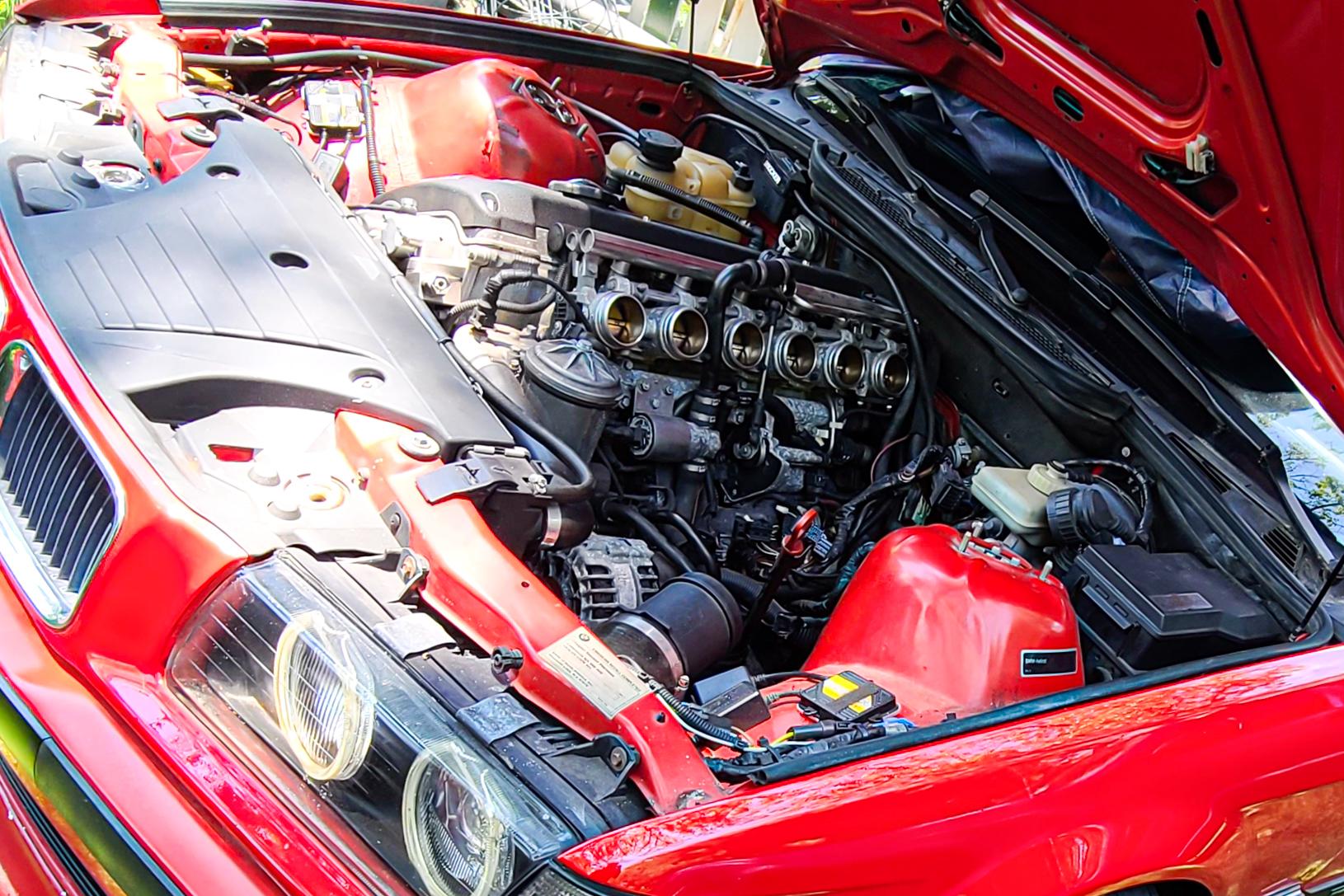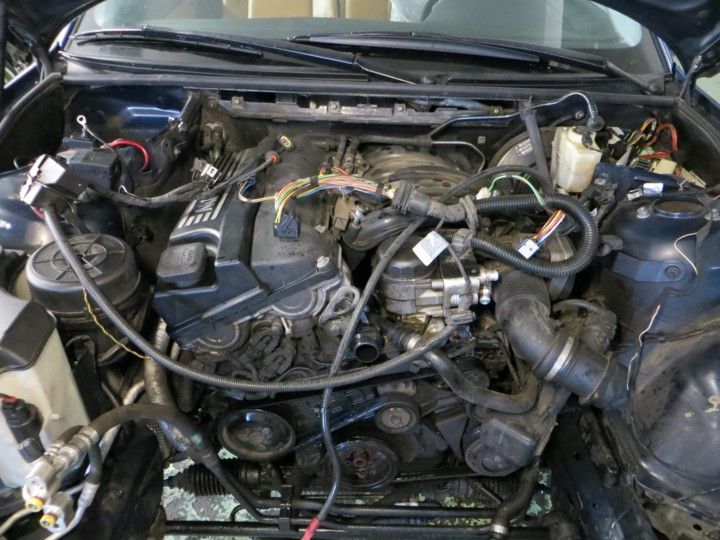Key Features to Look for When Acquiring an Engine for Automotive Applications
When taking into consideration the purchase of an engine for auto applications, a number of essential functions call for cautious analysis to make sure optimum efficiency and capability. From power and performance abilities to fuel durability, performance, and adherence to discharges standards, each aspect plays a crucial duty in establishing the engine's viability for details vehicle requirements.
Power and Efficiency
When selecting an automobile engine, purchasers prioritize power and performance to guarantee optimum driving experience and effectiveness. The power outcome of an engine, usually determined in horse power (HP) or kilowatts (kW), determines the acceleration, full throttle, and total capabilities of a lorry. Greater power rankings generally lead to quicker acceleration and far better performance, especially throughout surpassing or carrying hefty lots. Efficiency, on the various other hand, includes a more comprehensive range of characteristics, including gas performance, emissions, dependability, and total driving characteristics. A well-performing engine not only delivers power successfully but also operates efficiently across different speed varieties and driving conditions.
Additionally, aspects such as engine turbocharging, crossbreed, and variation modern technologies play significant functions in enhancing both power and performance levels. Eventually, selecting an engine that offers a potent combination of power and efficiency ensures a effective and enjoyable driving experience.
Fuel Efficiency
When examining vehicle engine choices,Maximizing gas efficiency is a critical consideration for customers. The efficiency of an engine directly affects operating expense and environmental footprint. One vital element influencing fuel effectiveness is the engine's design and technology. Modern engines with features like straight gas shot, turbocharging, and variable valve timing can substantially boost gas efficiency by enhancing combustion procedures and reducing energy loss. Additionally, the overall weight of the engine and car, as well as the aerodynamics, play critical duties in identifying gas usage.

Resilience and Reliability
Accomplishing lasting efficiency and reputable operation is necessary for consumers evaluating the toughness and dependability of automotive engines. When taking into consideration an engine for automotive applications, sturdiness refers to the engine's capability to endure wear, stress, and rough operating problems over an extended period. Dependability, on the various other hand, implies that the engine can constantly do its desired function without unforeseen malfunctions or failings.
Consumers must seek engines created with top notch materials and precise engineering to make sure durability. Components such as bearings, pistons, and crankshafts must be durable to manage the engine's power outcome without early wear. Additionally, engines equipped with innovative air conditioning systems, efficient lubrication, see and robust purification systems tend to show higher levels of reliability.
Regular maintenance and adherence to supplier referrals are likewise vital elements in protecting an engine's toughness and integrity. By complying with upkeep timetables, utilizing advised liquids, and resolving any type of concerns immediately, customers can optimize the life expectancy and performance of their automobile engines. Inevitably, focusing on longevity and dependability in engine choice can cause a more rewarding possession experience with less unexpected disturbances.
Exhausts Conformity
Ensuring conformity with emissions policies is a critical element of examining automotive engines for ecologically mindful consumers. With raising concerns about air quality and environmental impact, rigorous discharges standards have actually been put in area worldwide to decrease dangerous toxins launched into the ambience. When purchasing an engine for auto applications, it is vital to consider its exhausts conformity to minimize the carbon impact and abide by lawful needs.
Modern engines are geared up with advanced discharge control innovations such as catalytic converters, exhaust gas recirculation (EGR) systems, and selective catalytic reduction (SCR) to lower harmful exhaust gases like nitrogen oxides (NOx), carbon monoxide gas (CO), and hydrocarbons (HC) These systems play a vital function in guaranteeing that the engine meets the specified exhausts criteria and runs within permissible limitations.

Cost-effectiveness
When thinking about automobile engine purchases, evaluating cost-effectiveness is critical for consumers looking for both performance and value. Cost-effectiveness in engine purchase involves greater than simply the initial purchase cost. It includes the overall why not try these out expenditures associated with maintenance, fuel usage, and possible fixings over the engine's life-span. Choosing for an engine that provides an equilibrium between in advance prices and long-lasting savings can lead to significant benefits for the consumer.
One secret facet of cost-effectiveness is fuel efficiency. Engines that are created to make the most of fuel economic situation can cause significant cost savings over time, particularly for people who drive often or over long ranges. In addition, thinking about the availability and price of extra components and servicing can add to the general cost-effectiveness of an engine. Ensuring that repair and maintenance are affordable and available can avoid unanticipated monetary concerns down the line.

Verdict
In conclusion, when purchasing an engine for automotive applications, it is vital to take into consideration key attributes such as power and performance, fuel sturdiness, integrity and effectiveness, emissions conformity, and cost-effectiveness. These elements are essential in ensuring that the engine meets the requirements of the lorry and runs effectively in different driving conditions - bmw 318ti. Making a notified choice based on these requirements will ultimately cause a effective and reliable auto engine acquisition
From power and performance capabilities to fuel longevity, adherence, and efficiency to exhausts standards, each facet plays an essential role in determining the engine's viability for details auto demands. Engines designed to run on different fuels such as electric power, crossbreed systems, or biofuels can offer enhanced gas economy and lower discharges contrasted to typical gas or diesel engines. Consumers ought to carefully take into consideration the gas performance rankings and technologies incorporated into automobile engines to make informed purchasing choices that align with their priorities for price financial savings and sustainability.
When thinking about an engine for automobile applications, resilience refers to the engine's capacity to stand up to wear, tension, and extreme operating problems over an extended period.In conclusion, when purchasing an engine for vehicle applications, it is vital to consider crucial functions such as power and efficiency, gas resilience, efficiency and integrity, discharges conformity, and cost-effectiveness.